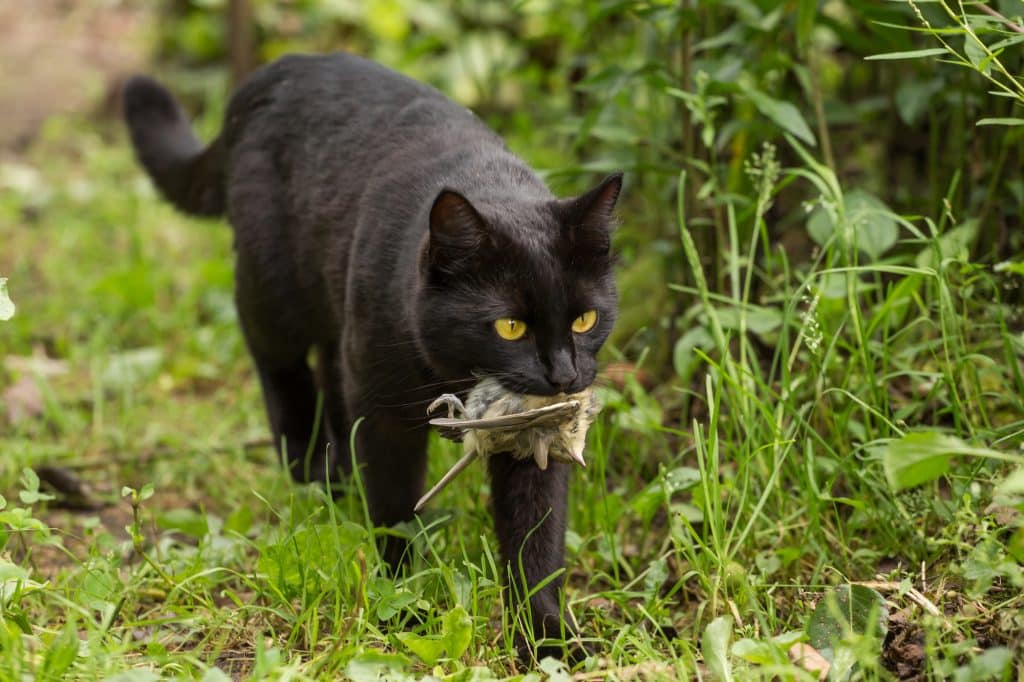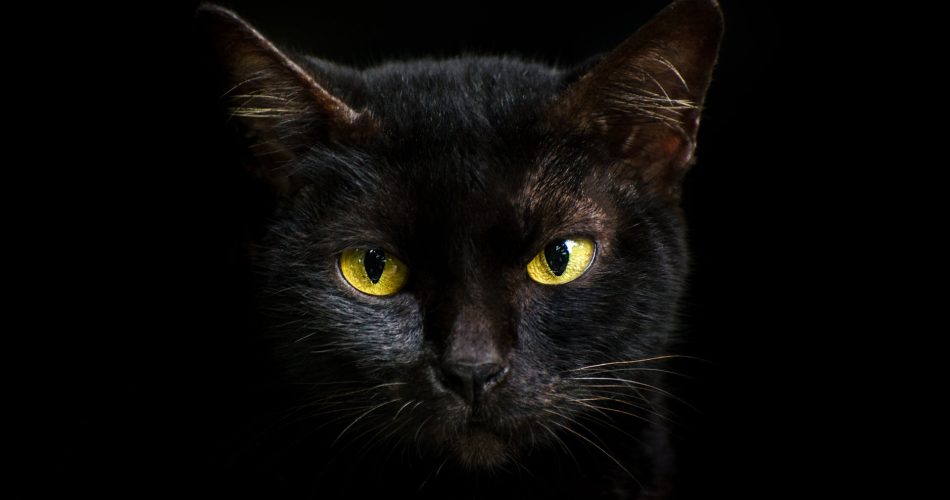Black cats have long held a unique position in human history, surrounded by mystery, fear, and fascination. For centuries, they’ve been seen as symbols of both good fortune and misfortune, depending on the culture and era. Their sleek black coats and piercing eyes have made them the subjects of countless tales and superstitions. Why are black cats so frequently associated with the supernatural, and how has their reputation evolved over time? Let’s dive into the origins, cultural interpretations, and modern-day perceptions of these enigmatic creatures.
The Origins of Black Cat Superstitions
Ancient Egypt and the Reverence for Cats
In ancient Egypt, cats, regardless of their color, were highly revered. They were considered sacred animals and closely associated with the goddess Bastet, the deity of home, fertility, and protection. Cats were believed to have divine energy, and harming a cat, especially a black one, could bring severe consequences. Their ability to hunt and eliminate pests, such as mice and rats, elevated their status in society. Black cats, in particular, were often viewed as protectors, warding off evil spirits from households.
The Middle Ages: When Black Cats Became Ominous
The narrative surrounding black cats took a dark turn during the Middle Ages in Europe. They became associated with witchcraft and dark magic, as their nocturnal habits and ability to blend into shadows made them appear mysterious and suspicious. Superstitions claimed that witches often kept black cats as their familiars—supernatural entities that aided in spellcasting. Some even believed that witches could transform into black cats to roam freely without being detected. This connection with witchcraft led to widespread fear and persecution of black cats during witch trials and inquisitions, resulting in a tragic decline in their population.

Black Cats in Different Cultures
Good Luck or Bad Luck? Varying Beliefs Across the Globe
While black cats are often considered unlucky in Western cultures, the opposite is true in many parts of the world. In Japan, black cats are believed to bring good fortune, especially for single women seeking a partner. Similarly, in Scotland, a black cat’s arrival on your doorstep is thought to herald prosperity and wealth. In contrast, in the United States and many parts of Europe, black cats have long been seen as omens of bad luck. The superstition that crossing paths with a black cat brings misfortune is one of the most enduring beliefs.
The Role of Black Cats in Halloween and Witchcraft
Black cats are now deeply entrenched in Halloween imagery, often depicted alongside witches, pumpkins, and cauldrons. This association dates back to the fear of witches during the Middle Ages, as black cats were believed to be their companions. Over time, the imagery became more symbolic than literal, with black cats taking on a playful yet spooky role in modern celebrations of Halloween.
The Scientific Reason Behind Black Cat Myths
The Genetics of Black Fur
Black cats owe their striking appearance to a specific gene that produces their sleek, dark coats. This gene not only gives them their unique coloration but may also provide them with some health benefits. Studies suggest that the genetic mutation responsible for black fur might make them more resistant to certain diseases, enhancing their longevity. This might explain why they’ve been viewed as resilient and mystical creatures throughout history.

Why the Human Mind Connects Black Cats to Fear
The human tendency to associate black with mystery, danger, and the unknown likely contributed to the fear surrounding black cats. In psychology, this phenomenon is tied to our instinctive reactions to darkness, which has historically been linked to danger. The shadowy appearance of black cats, combined with their stealthy behavior, may have reinforced the superstitions that persist to this day.
Modern-Day Perceptions of Black Cats
The Rise of Black Cat Adoption Campaigns
Despite their historical reputation, black cats have become a symbol of charm and mystery in modern times. However, they still face challenges, particularly in animal shelters, where they are often overlooked for adoption due to lingering superstitions or the misconception that they’re less photogenic. To combat this, many organizations have launched campaigns to promote black cat adoption, emphasizing their beauty and affectionate nature.
Social Media and Black Cat Popularity
The internet has played a significant role in shifting perceptions of black cats. Viral photos and videos of black cats have helped showcase their playful and loving personalities, breaking down old stereotypes. Black cats have even gained their own fan base on platforms like Instagram, where hashtags like #BlackCatAppreciation and #BlackCatsRule celebrate their uniqueness.
Famous Black Cats in Pop Culture
Black Cats in Literature and Movies
From Edgar Allan Poe’s chilling story “The Black Cat” to the iconic Salem from the TV show Sabrina the Teenage Witch, black cats have left their mark on pop culture. These feline characters often embody mystery and magic, cementing their place in our collective imagination. Their appearances in films like Hocus Pocus and Coraline have only added to their enigmatic charm.
Black Cats as Mascots and Symbols
In sports, black cats have been used as mascots for their sleek and intimidating appearance. Meanwhile, brands and products often use black cats as logos to evoke elegance and sophistication. Their dual symbolism as both ominous and lucky continues to make them versatile icons in various industries.

How to Appreciate Black Cats Without Fear
Debunking Myths About Black Cats
One way to appreciate black cats is by understanding the myths and superstitions that have surrounded them. Educating others about their history and the cultural biases that contributed to their reputation can help dispel unfounded fears.
Adopting and Caring for Black Cats
Black cats make wonderful pets, just like any other feline. They are loving, playful, and full of personality. By adopting a black cat, you not only gain a loyal companion but also help challenge the stigma that has plagued them for centuries.
Conclusion
Black cats have endured centuries of superstition, evolving from revered protectors in ancient Egypt to feared companions of witches in medieval Europe. Today, they are celebrated for their beauty and charm, even as some myths persist. By understanding their history and appreciating their unique qualities, we can move past old superstitions and embrace black cats for the wonderful creatures they truly are.
FAQs
1. Are black cats really unlucky?
No, the belief that black cats are unlucky is a superstition rooted in historical fear and cultural bias. In many cultures, they are actually considered symbols of good fortune.
2. Why are black cats associated with Halloween?
Black cats became linked to Halloween due to their historical association with witches and witchcraft during the Middle Ages.
3. Are black cats less likely to be adopted?
Unfortunately, yes. Black cats are often overlooked in shelters due to superstitions and the belief that they are less photogenic.
4. What do black cats symbolize in Japan?
In Japan, black cats are considered good luck, particularly for single women seeking a partner.
5. How can I support black cat adoption?
You can support black cat adoption by spreading awareness, donating to shelters, and choosing to adopt one yourself.
